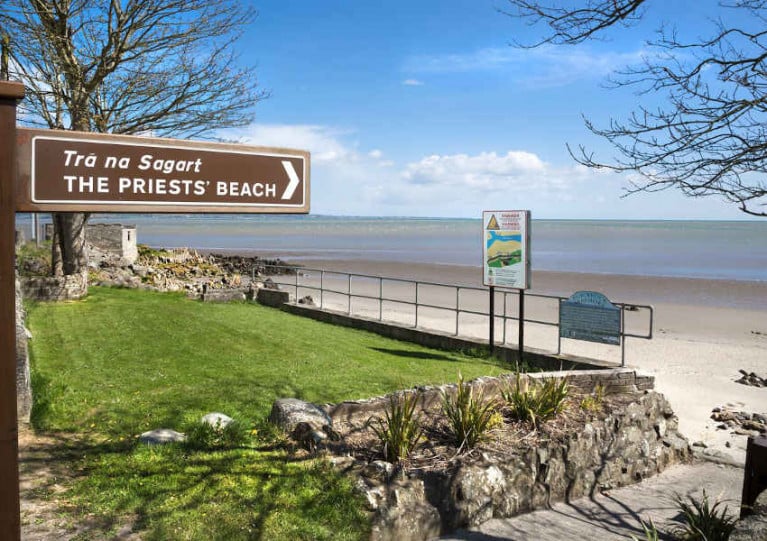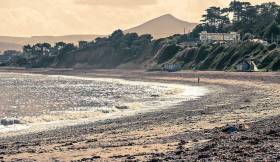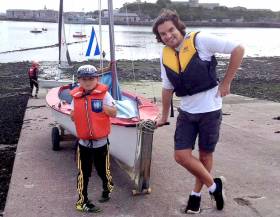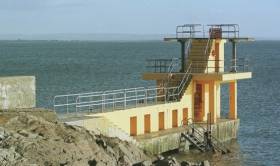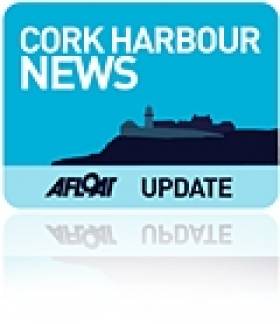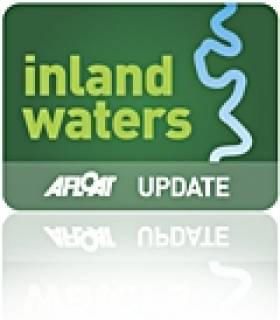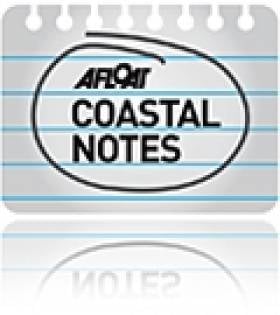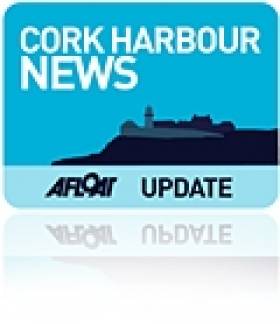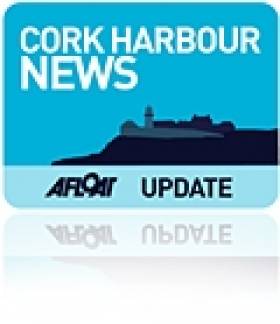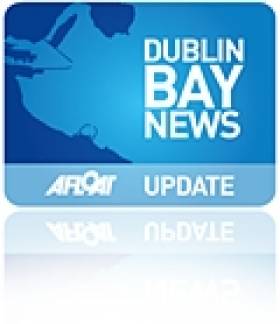Displaying items by tag: Blackrock
Two Rescued After Incident At Co Louth Beach
The Irish Mirror reports that two people were rescued from a beach in Co Louth on Saturday afternoon (23 May) after getting into difficulty in the water.
Clogherhead RNLI and the Irish Coast Guard were tasked to the scene at Priests’ Beach in Blackrock, south of Dundalk,
And it’s understood the two individuals, who were surfers, were airlifted to hospital in Drogheda for treatment by the Dublin-based coastguard helicopter Rescue 116.
#Pollution - RTÉ News reports that a swimming ban was lifted yesterday on bathing spots at Seapoint and Killiney on Dublin Bay’s southern shore after high levels of E.coli were detected last Friday (30 June).
The bathing ban remains at Blackrock Baths pending the results of samples expected later today (Wednesday 5 July). Blackrock and Seapoint were subject to a similar ban for high E.coli levels back in January, according to TheJournal.ie.
More recently, the beaches at Dollymount and Sandymount were closed to swimming after heavy rains caused by a sewage spill in the River Liffey.
Ryan (9) Takes Second Place In His First Sailing Race
Ryan McCormick took part in the Cobh to Blackrock sailing race organised by Cove Sailing Club last Saturday 17th September. Nine year old Ryan sailed for the first time with his uncle and picked up the basic skills very quickly. They captured the event on two Go pro cameras attached to the boat creating a time-lapse video (below). The pair went on to claim second place in the dinghy class of the race.
The seven nautical mile race has been held every year from Cobh since 1966 but dates back much further when the race started from Ringaskiddy. This year's race had very light winds and was more about taking advantage of the strong river currents than using the wind.
The boat the duo sailed in is a 13’ dinghy, about 50 years old and has a homemade mast and rigging. The 60+ fleet ranged from Rankin dinghies dating back to the late 1950’s to modern 40’ racing yachts.
Union Chandlery and Port of Cork sponsored the event with complimentary overnight berthing from Cork City Marina. The prize giving, refreshments and BBQ were held in the Sextant bar.
More on the race plus a photo gallery here
Liferaft Won't Be Part Of Blackrock Tower Upgrades
#Galway - The liferaft at Blackrock Diving Tower on Galway Bay is not likely to be reinstated, as Galway Bay FM reports.
Concerns over risks posed by the raft were reiterated at a meeting of Galway City Council earlier this week, following a poor health and safety assessment of the amenity last year.
The raft was removed from the tower in 2014 after it was associated with incidents of falls and near drownings recorded by lifeguards, according to the Connacht Tribune.
Afloat.ie reported late last month on a public consultation regarding long-awaited upgrades and repairs to the iconic diving tower in Salthill.
Cork's Blackrock Harbour Plaza Works Scheduled For Summer
#CorkHarbour - Sod will be turned in June for a new paved plaza at Blackrock Harbour in Cork city, as the Evening Echo reports.
The €1.5 million scheme will see the harbour area completely redeveloped, with an open plaza with priority for pedestrians and cyclists leading down to the water by steps that will replace the present curved harbour wall.
Future developments include opening the boundary wall at the adjacent Ursulines Convent to create a connected park and playground area, and the incorporation of recently uncovered tram lines into the project in some capacity.
The Evening Echo has more on the story HERE.
Name That Stream! Blackrock School Pupils Need Your Help
#InlandWaterways - Can you help pupils at Blackrock's International School Dublin identify the stream behind their building?
The 9-to-12-year-olds in Miss Nelson's class have been researching the natural history of the neighbourhood surrounding their school in South Co Dublin, but have been stumped by the stream that runs behind the school building.
The narrow waterway runs north through St Louise's Park and alongside Barclay Court before going under and through Blackrock. Visible on many online maps, it's only labelled by name on one as the Carysfort-Maretimo Stream.
Miss Nelson's class are hoping any locals reading this can confirm if their stream is indeed known by that name, and any other information about it such as its history, where it rises and where it flows.
If you think you can help, please leave a comment below!
Blackrock Baths to Face Demolition
#COASTAL NOTES - The famed Blackrock Baths are to be demolished after county councillors deemed the now-derelict facility as "dangerous", The Irish Times reports.
Dating from 1839, the seafront baths were once Ireland's top venue for watersports, featuring a 50-metre pool and a diving platform that is still a feature of the south Dublin coastal vista.
However since the baths closed in the 1980s the site fell into disrepair. In 1997 the freehold for the site was purchased by Treasury Holdings Ltd, one of the companies most severely affected by the collapse of the property market.
In a statement, Dun Laoghaire-Rathdown County Council said that the baths had suffered from extensive weathering and erosion "making the structures and adjoining land dangerous for members of the public". The diving platform was also found to have corroded and detached from its base.
A council inspection saw the bath facilities declared as "dangerous structures", and demolition work on those elements is set to commence shortly.
The Irish Times has more on the story HERE.
100 Boats Expected for Saturday's Cobh to Blackrock Yacht Race
This historic race – sponsored by the Port of Cork – will again feature strongly as one of the biggest events supporting this years Cork Harbour Open Day
Starting at midday off Cobh Promenade the race will continue along its traditional route passing Ringaskiddy, Monkstown, Passage, across Loch Mahon and along to the finish at Blackrock Castle.
All boats are then invited to continue up to the City Quays where complimentary berthing will be provided by the Port of Cork at the Cork City Marina.
A barbecue and usual refreshments will be available at the Boardwalk Restaurant (just opposite the City Pontoon) along Lapps Quay. The prize-giving will take place during the afternoon at the Boardwalk. Crews, their families and friends will have plenty of time to relax and enjoy themselves as we wind up the CSC laptop (and operators) to collate the dozens of times across all manner of classes in to a meaningful set of results.
The club would appreciate it if competitors would come along to support the after race festivities and prize-giving, especially if you think you may have won something. As always, the race is free to enter and a collection will be held for the RNLI during the afternoon.
‘Call for Events’- Cork Harbour Open Day
This year's Cork Harbour Open Day will take place on Saturday 10th September. The event aims to embrace the best of what Cork Harbour has to offer.
The Open Day seeks to raise awareness of the different free activities and events available for families in the harbour both on and off the water. If you would like to be involved in Cork Harbour Open Day or organise an event on the day, please contact Sara MacKeown Tel: (021) 4625375 or by email: [email protected]
All of the events will be promoted on the lead up to the day via PR, advertising and social media. For further information www.corkharbour.ie
Organisers of the Focus Ireland Triathlon in Dun Laoghaire on Sunday 31 July have announced a list of road closures in the area, and have also put out a call for volunteers to assist on the day.
Full road closures will be necessary from 7.45am to 11am in the Blackrock, Monkstown and Dun Laoghaire areas. A complete list plus a map of road closures and diversions are available to download below.
Meanwhile, volunteers are required to assist in all aspects of the event. Canoeists and kayakers are especially needed for safety support during the swimming section of the race.
Anyone who has some time to help out on the day, or who can supply canoes or kayaks for the event, is urged to contact events assistant Anne Griffin at [email protected].
Entries are still open for the Focus Ireland Triathlon, which comprises a 750m/350m swim, a 20k cycle and a 5k run. Registration is €80 for individuals/€240 for teams and entries can be made at www.focusireland.ie. For more details call 1850 204 205 or e-mail [email protected].



























